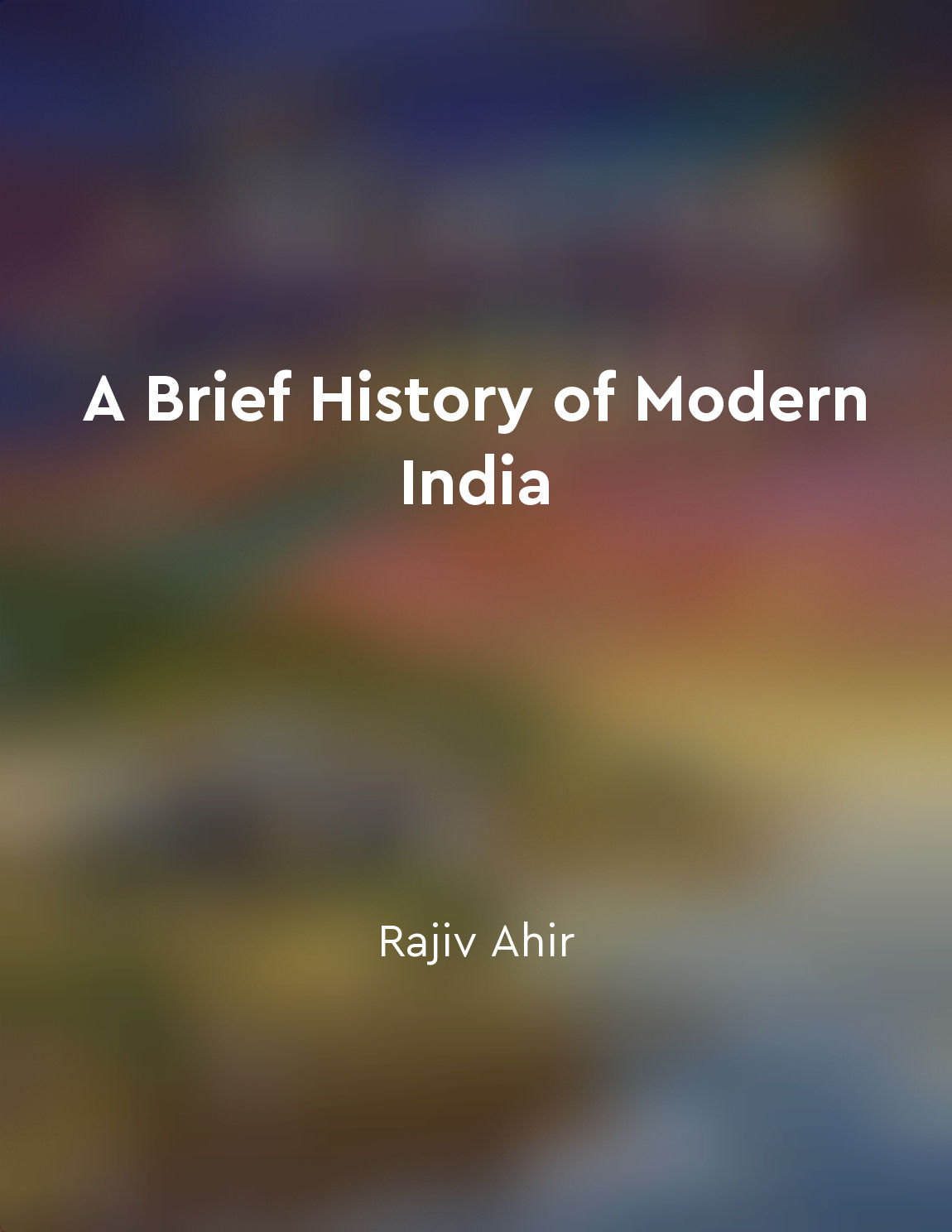Science and technology in India from "summary" of The Discovery of India by Jawaharlal Nehru
Jawaharlal Nehru delves into the rich history of science and technology in India, highlighting the significant contributions made by ancient Indian scholars in various fields. He emphasizes the advanced knowledge and expertise in mathematics, astronomy, medicine, and metallurgy that existed in India long before the arrival of colonial powers. Nehru showcases the achievements of luminaries like Aryabhata, Varahamihira, Sushruta, and Charaka, whose groundbreaking discoveries and innovations continue to inspire awe and admiration. Nehru elucidates the deep-rooted connection between science and spirituality in India, noting how these two seemingly distinct realms often intersected and complemented each other. He discusses the concept of 'Darshan Shastra', which encompasses both philosophical and scientific thought, underscoring the holistic approach to understanding the world that ancient Indian scholars espoused. Nehru emphasizes the importance of viewing science not as separate from other disciplines but as an integral part of a comprehensive worldview. Furthermore, Nehru sheds light on the impact of foreign invasions and colonial rule on India's scientific and technological development. He laments the decline of indigenous knowledge systems under British imperialism, citing the systematic dismantling of traditional educational institutions and the imposition of Western scientific paradigms. Nehru underscores the need to reclaim and revitalize India's scientific heritage, urging the nation to draw inspiration from its illustrious past to propel itself into the future. Nehru also discusses the role of science and technology in the modernization of India, advocating for a balanced approach that combines indigenous wisdom with contemporary advancements. He acknowledges the importance of embracing new technologies and methodologies while also preserving and promoting traditional practices that have stood the test of time. Nehru envisions a future where India harnesses the power of science and technology to address pressing societal challenges and achieve sustainable development.- Nehru's exploration of science and technology in India serves as a testament to the country's enduring legacy of innovation and intellectual prowess. By delving into the intricacies of ancient knowledge systems, examining the impact of colonialism, and envisioning a harmonious blend of tradition and progress, Nehru offers a comprehensive perspective on the role of science in shaping India's past, present, and future.
Similar Posts
Familiarity with important events like the Partition of India is necessary
It is crucial for individuals to have a good understanding of significant events like the Partition of India. This event had a ...
Kalam's innovative ideas left a lasting impact on Indian society
Dr. A.
P.
J. Abdul Kalam, with his innovative ideas, revolutionized various aspects of Indian society. His vision and initiat...
The caste system played a significant role in Indian society
The caste system, an institution deeply rooted in Indian society, has had a profound impact on various aspects of life in the s...
Geographical factors influenced the course of Indian history
India's history has been greatly shaped by its diverse geographical features. The physical landscape of the subcontinent has pl...
The book concludes with a message of hope and optimism
As I recall the journey described in these pages, I am struck by the resilience and determination displayed by the protagonist....

Green Revolution in agriculture
The Green Revolution in agriculture was a significant movement that took place in India during the mid-1960s. This revolution a...

